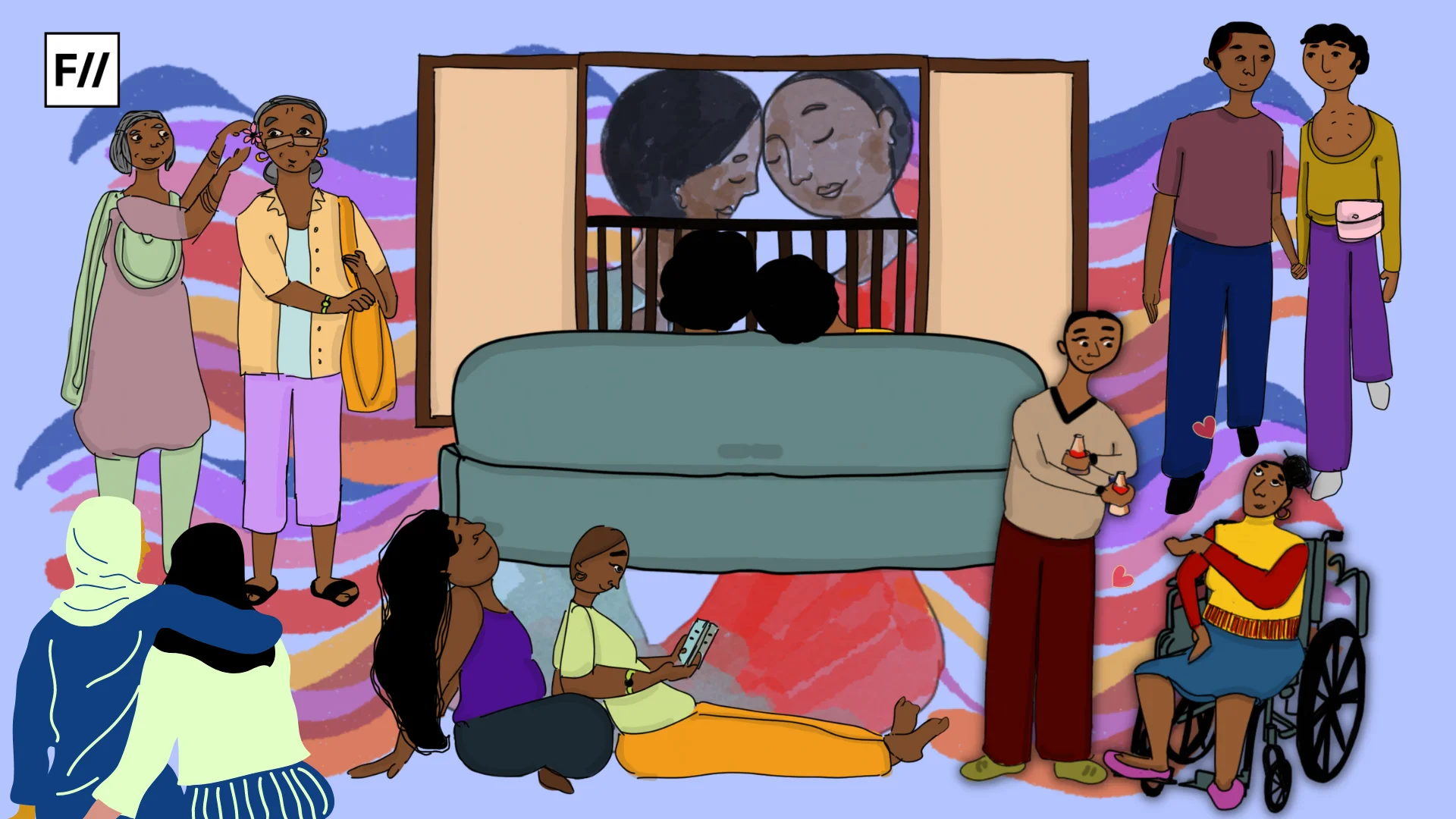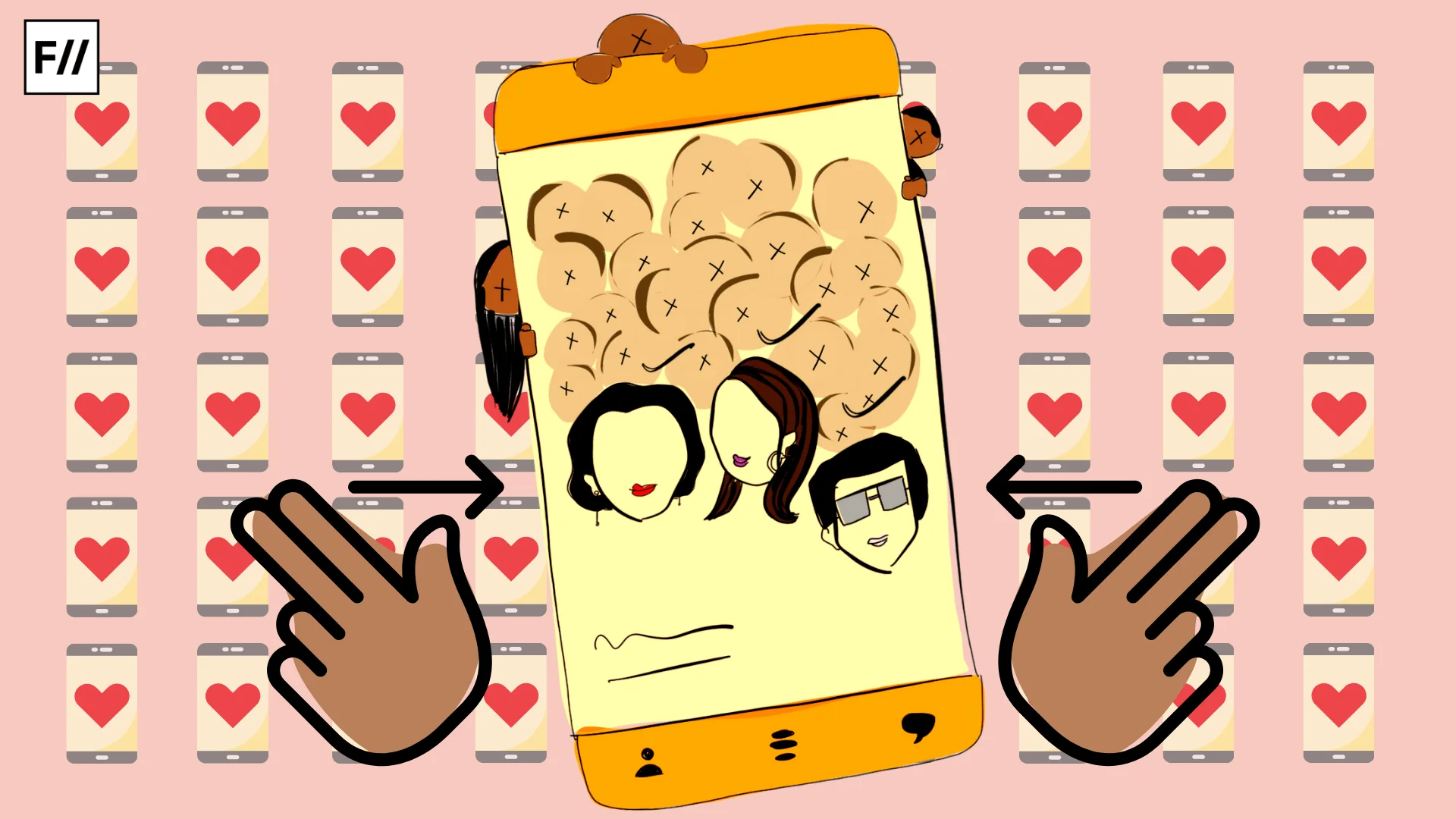Posted by Srinidhi Raghavan
Growing up, I had difficulty accessing good sexuality education. Make that any sexuality education. In fact, I saw two dogs having sex and later told friends that even humans got stuck during sex, just like dogs did. The power of miscommunication meant that my friends shared this nugget of information with someone else. I couldn’t have known better as no one spoke openly about sex. This was all the information I had and held on to until I read more on the topic.
Adolescence and sexuality are rarely uttered in the same breath. When done so, a thick coating of morality and abstinence-until-marriage is applied to the information. There are many reasons why this is true. One is the assumption that speaking about sexuality will increase promiscuity. Two, in most countries the age of consent (18 in India) is debatable and confusing; hence leaving the conversation on consensual acts of pleasure among adolescents in the dark. Three, we have wrapped up childhood and adolescence in the garb of protection, which has left no room for adolescents and children themselves to negotiate their opinions and rights. Four, as a society be it parents or teachers or even doctors, we have difficulty saying the words sex, sexuality, vagina, penis out loud, possibly due to our own discomfort with the body.
In this piece, we hope to discuss in more detail some of these reasons and what we as adults can do.
Violence, pleasure, sex
Adolescents are engaging in sexual acts. This is the reality. But currently, we as adults mostly find out only after they elope or through the rise in teenage pregnancies. We have been seeing trends of adolescent pregnancies which could end in unsafe abortions or even maternal deaths. A while ago, The Hindu conducted a detailed data study on the registered rape cases in Delhi. They found that a large percentage of the cases were filed by parents of adolescents exercising agency and eloping. The girls in these cases had stated that they had chosen their partners and had sexual relations with consent. This study helps in seeing the pitfalls of silence around adolescents and sexuality.
Adolescence is full of hormones, tumultuous changes, confusion and chaos. Law with respect to adolescence is similar. There are a whole range of legislations dealing with violence related to children which begs a conversation around health and sexual activity. We have the Protection of Children from Sexual Offences Act that deals with child sexual abuse; Prohibition of Child Marriages Act that looks at early marriages and Indian Penal Code (criminal law amendment 2013) that deals with rape and exceptions to rape.
All of these define and redefine who is a child and what conversations we can legally have with them; what they are legally allowed to do (sexually), with whom and when. Most of it deals with consensual sexual activity only after the legal age of marriage which means we have a pre-conceived notion that ties exercising of sexuality to marital relationships. This handful graphic by Agents of Ishq clears up the law around adolescents for us.
So, our conversation with respect to adolescents and sexuality in most spaces can be restricted to discussions around violence. Though necessary and pertinent, this conversation is not enough.
Protection vs. agency
They say, knowledge is power. One of the reasons several organisations working with adolescents advocate for Comprehensive Sexuality Education is that it would fill the current void of information. It would, we argue, help adolescents in making choices favouring their health and well-being, development and growth. But how this information is provided is very important.
We have to build a group of sexuality educators who have the language to communicate with adolescents in a manner that is enriching. This could be done in multiple ways, through curated internet spaces where adolescents could look up information or through trained professionals who provide the correct information in an appropriate manner and help clear misconceptions in a non-judgmental manner.
We need to unlearn and let go of our own inhibitions to have open conversations with those around us, children or adults.
We need to engage with adolescents about their desires, wishes and thoughts by creating a safe space for them to discuss, feel and ideate outside the realm of law.
Knowledge based consent will allow adolescents, especially adolescent girls, to make choices that will enhance their experiences; we need to help them find a safe space to makes errors, voice their concerns, clarify their myths.
As adults then, we must endeavour to create these spaces for adolescents to learn, grow, explore and experiment with their sexuality.
Also read: “Middle class morality dictates the conversations around sexuality in India”: Vidya Reddy
Srinidhi Raghavan is a gender consultant at Laadli- an initiative of Population First. She is a feminist interested in gender, sexuality, law, media, human rights and poetry. She writes part-time and reads full-time.
About the author(s)
Guest Writers are writers who occasionally write on FII.




